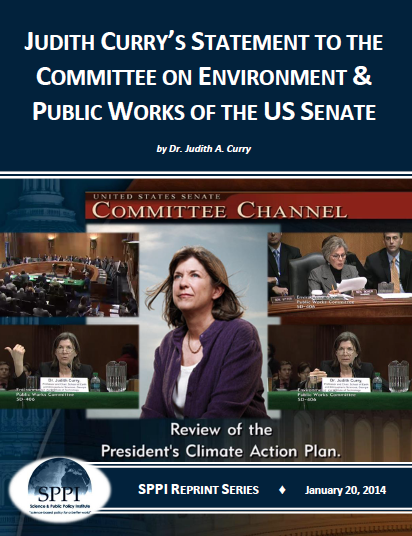News / Politics
STATEMENT TO THE COMMITTEE ON ENVIRONMENT AND PUBLIC WORKS OF THE UNITED STATES SENATE
Hearing on “Review of the President’s Climate Action Plan”

I am Chair of the School of Earth and Atmospheric Sciences at the Georgia Institute of Technology. I have devoted 30 years to conducting research on topics including climate of the Arctic, the role of clouds and aerosols in the climate system, and the climate dynamics of extreme weather events. As President of Climate Forecast Applications Network (CFAN) LLC, I have worked with decision makers on climate impact assessments, assessing and developing meteorological hazard and climate adaptation strategies, and developing subseasonal climate forecasting strategies to support adaptive management.
I am increasingly concerned that both the climate change problem and its solution have been vastly oversimplified.
My research on understanding the dynamics of uncertainty at the climate science-policy interface has led me to question whether these dynamics are operating in a manner that is healthy for either the science or the policy process. I see a growing gap between what science is currently providing in terms of information about climate variability and change, and the information needed to understand and manage associated risks.
My testimony focuses on the following issues of central relevance to the President’s Climate Change Program:
Evidence reported by the IPCC AR5 weakens the case for human factors dominating climate change in the 20th and early 21st centuries.
Climate change in the U.S. and the importance of natural variability on understanding the causes of extreme events.
Sound science to manage climate impacts requires improved understanding of natural climate variability and its impact on extreme weather events.
